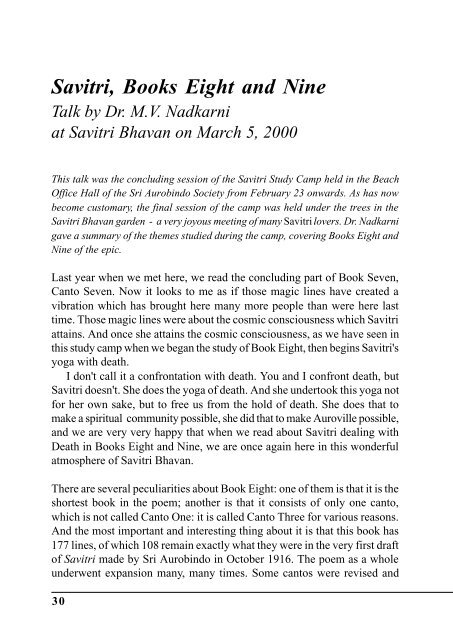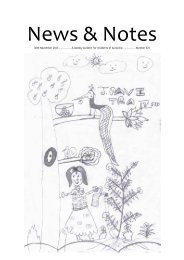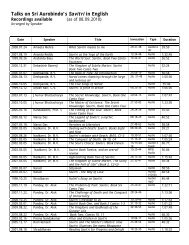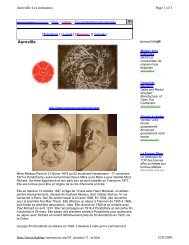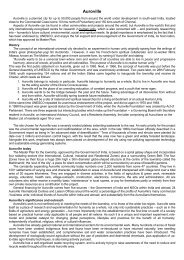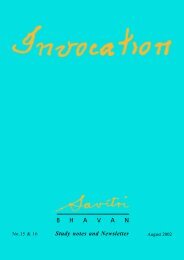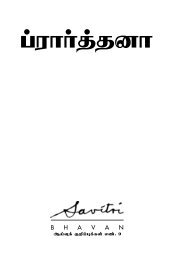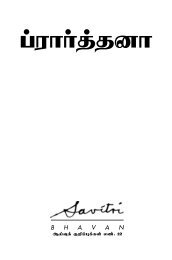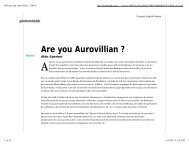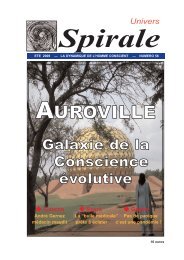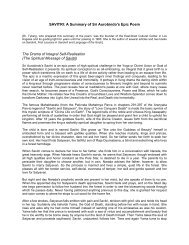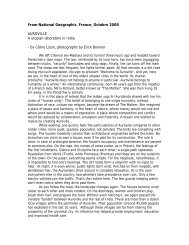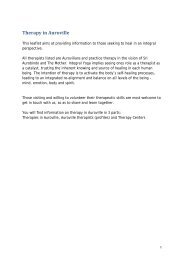Invocation 08 - Auroville
Invocation 08 - Auroville
Invocation 08 - Auroville
Create successful ePaper yourself
Turn your PDF publications into a flip-book with our unique Google optimized e-Paper software.
Savitri, Books Eight and Nine<br />
Talk by Dr. M.V. Nadkarni<br />
at Savitri Bhavan on March 5, 2000<br />
This talk was the concluding session of the Savitri Study Camp held in the Beach<br />
Office Hall of the Sri Aurobindo Society from February 23 onwards. As has now<br />
become customary, the final session of the camp was held under the trees in the<br />
Savitri Bhavan garden - a very joyous meeting of many Savitri lovers. Dr. Nadkarni<br />
gave a summary of the themes studied during the camp, covering Books Eight and<br />
Nine of the epic.<br />
Last year when we met here, we read the concluding part of Book Seven,<br />
Canto Seven. Now it looks to me as if those magic lines have created a<br />
vibration which has brought here many more people than were here last<br />
time. Those magic lines were about the cosmic consciousness which Savitri<br />
attains. And once she attains the cosmic consciousness, as we have seen in<br />
this study camp when we began the study of Book Eight, then begins Savitri's<br />
yoga with death.<br />
I don't call it a confrontation with death. You and I confront death, but<br />
Savitri doesn't. She does the yoga of death. And she undertook this yoga not<br />
for her own sake, but to free us from the hold of death. She does that to<br />
make a spiritual community possible, she did that to make <strong>Auroville</strong> possible,<br />
and we are very very happy that when we read about Savitri dealing with<br />
Death in Books Eight and Nine, we are once again here in this wonderful<br />
atmosphere of Savitri Bhavan.<br />
There are several peculiarities about Book Eight: one of them is that it is the<br />
shortest book in the poem; another is that it consists of only one canto,<br />
which is not called Canto One: it is called Canto Three for various reasons.<br />
And the most important and interesting thing about it is that this book has<br />
177 lines, of which 1<strong>08</strong> remain exactly what they were in the very first draft<br />
of Savitri made by Sri Aurobindo in October 1916. The poem as a whole<br />
underwent expansion many, many times. Some cantos were revised and<br />
30


